
Waterford: Ireland's Ancient Gem
Waterford, the oldest city in Ireland, is a treasure trove of history and culture. Founded by the Vikings in 914 AD, this city offers a unique blend of ancient and modern attractions. As you walk through its narrow cobbled streets, you'll encounter a delightful mix of medieval architecture, lively pubs, and contemporary art galleries. The city's Viking Triangle is a must-see. This historic quarter is home to Reginald's Tower, the oldest civic building in Ireland, and the Waterford Museum of Treasures, which showcases the city's rich past. Don't miss the stunning Waterford Crystal Visitor Centre, where you can watch master craftsmen at work and even purchase a piece of the world-famous crystal. For those who love the outdoors, Waterford's coastal scenery is breathtaking. Take a stroll along the picturesque Copper Coast, a UNESCO Global Geopark, or explore the lush Comeragh Mountains. The city also boasts beautiful beaches, perfect for a relaxing day by the sea. Foodies will delight in Waterford's culinary scene, which features both traditional Irish fare and innovative dishes made with local ingredients. Be sure to try a blaa, a soft white bread roll unique to the city, and enjoy fresh seafood at one of the many excellent restaurants. Whether you're a history buff, nature lover, or foodie, Waterford has something to offer everyone. Its warm and welcoming atmosphere will make you feel right at home.
Local tips in Waterford
- Visit the Viking Triangle early in the morning to avoid crowds and get the best photos.
- Try a blaa for breakfast; it's a local favorite and unique to Waterford.
- Take a guided tour of the Waterford Crystal Visitor Centre for a deeper understanding of the craft.
- Wear comfortable shoes; Waterford's cobblestone streets can be tricky to navigate.
- Check the weather forecast and pack layers, as Ireland's weather can be quite unpredictable.
Waterford: Ireland's Ancient Gem
Waterford, the oldest city in Ireland, is a treasure trove of history and culture. Founded by the Vikings in 914 AD, this city offers a unique blend of ancient and modern attractions. As you walk through its narrow cobbled streets, you'll encounter a delightful mix of medieval architecture, lively pubs, and contemporary art galleries. The city's Viking Triangle is a must-see. This historic quarter is home to Reginald's Tower, the oldest civic building in Ireland, and the Waterford Museum of Treasures, which showcases the city's rich past. Don't miss the stunning Waterford Crystal Visitor Centre, where you can watch master craftsmen at work and even purchase a piece of the world-famous crystal. For those who love the outdoors, Waterford's coastal scenery is breathtaking. Take a stroll along the picturesque Copper Coast, a UNESCO Global Geopark, or explore the lush Comeragh Mountains. The city also boasts beautiful beaches, perfect for a relaxing day by the sea. Foodies will delight in Waterford's culinary scene, which features both traditional Irish fare and innovative dishes made with local ingredients. Be sure to try a blaa, a soft white bread roll unique to the city, and enjoy fresh seafood at one of the many excellent restaurants. Whether you're a history buff, nature lover, or foodie, Waterford has something to offer everyone. Its warm and welcoming atmosphere will make you feel right at home.
When is the best time to go to Waterford?
Iconic landmarks you can’t miss
House of Waterford
Experience the artistry of Waterford Crystal at the House of Waterford, where craftsmanship and history come together in a mesmerizing journey.
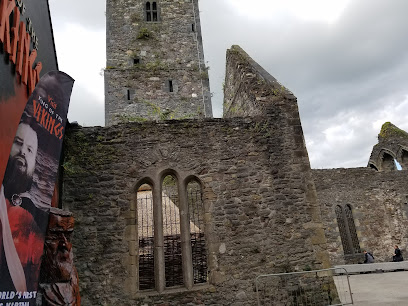
Waterford Treasures: Medieval Museum (Treasures of Medieval Waterford)
Discover the Medieval Treasures of Waterford: A Journey Through Ireland's Rich History Awaits You at the Medieval Museum.
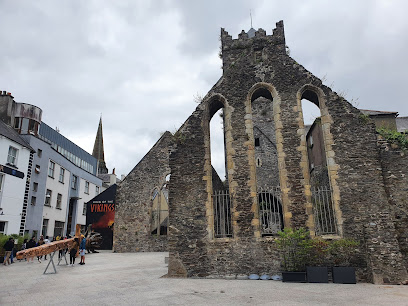
Clock Tower
Explore the historic Clock Tower in Waterford, a stunning landmark showcasing the city's rich maritime heritage and architectural beauty.
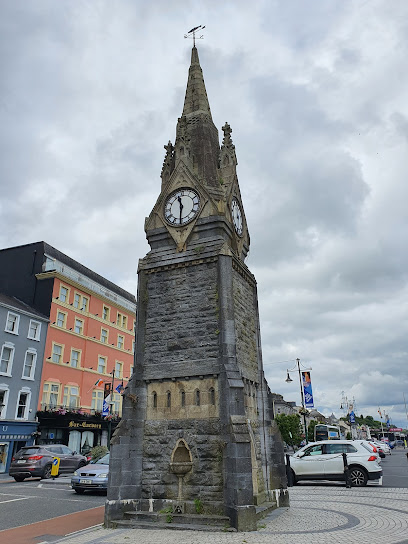
Reginald's Tower
Discover the rich history of Waterford at Reginald's Tower, a 12th-century fortress showcasing Viking heritage and offering stunning river views.
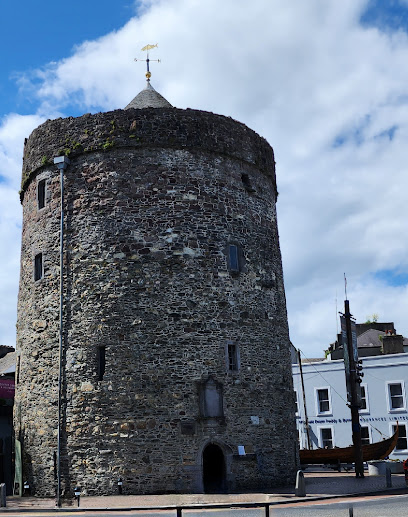
King Of The Vikings
Discover the rich Viking heritage of Waterford at King Of The Vikings, where history comes alive through immersive exhibits and captivating storytelling.
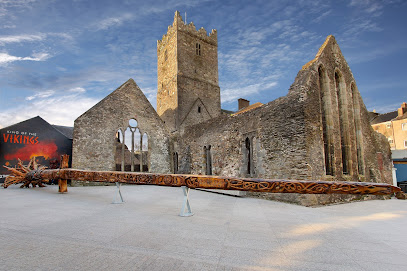
St. Patrick's Gateway Centre
Explore the historical wonders of St. Patrick's Gateway Centre in Waterford, a vibrant community center blending rich culture and architectural beauty.
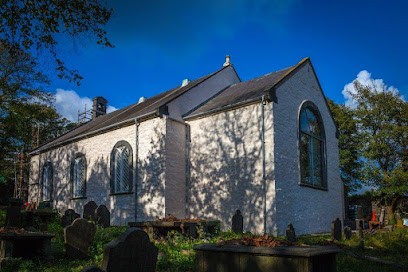
Waterford Treasures: Bishop's Palace (Treasures of Georgian Waterford)
Explore Waterford Treasures: Bishop's Palace, where history comes alive through exquisite Georgian artifacts and engaging exhibits.
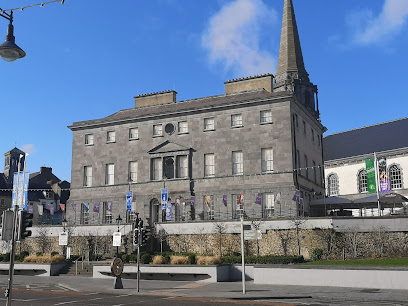
Edmund Rice Heritage Centre
Discover the inspiring legacy of Edmund Rice at the Heritage Centre in Waterford, Ireland, where education meets social justice in a historic setting.
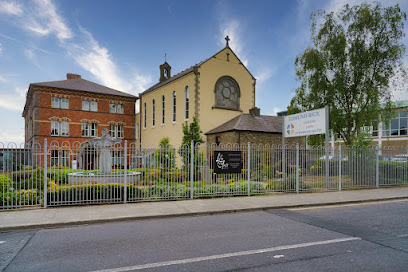
The Dragon Slayer Sword
Uncover the legend of the Dragon Slayer Sword in Waterford, a historical gem that tells tales of valor and craftsmanship.
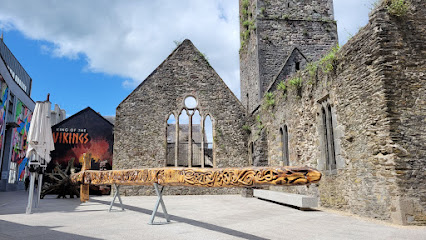
William Vincent Wallace Plaza
Explore the vibrant William Vincent Wallace Plaza in Waterford, a cultural landmark where music, history, and community come together for an unforgettable experience.
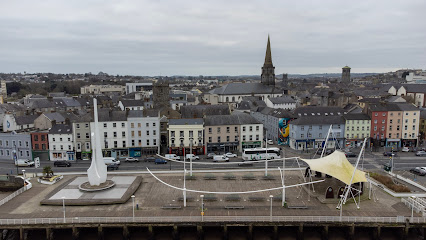
Beach Tower, Waterford
Experience the historical charm and scenic beauty of Beach Tower, a must-visit landmark in Waterford, Ireland, steeped in maritime heritage.
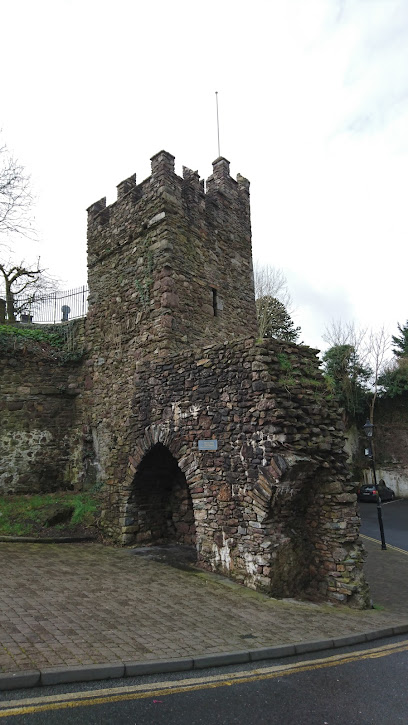
The Viking Triangle
Explore The Viking Triangle, a historical gem in Waterford, where ancient Viking heritage meets vibrant culture in a picturesque setting.
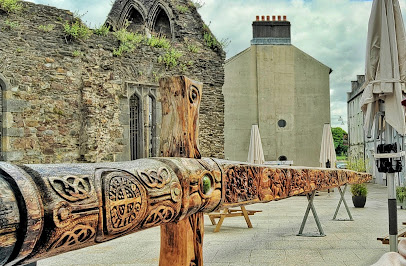
The French Tower
Discover the historical splendor of the French Tower in Waterford, Ireland, a captivating landmark steeped in rich heritage and architectural beauty.
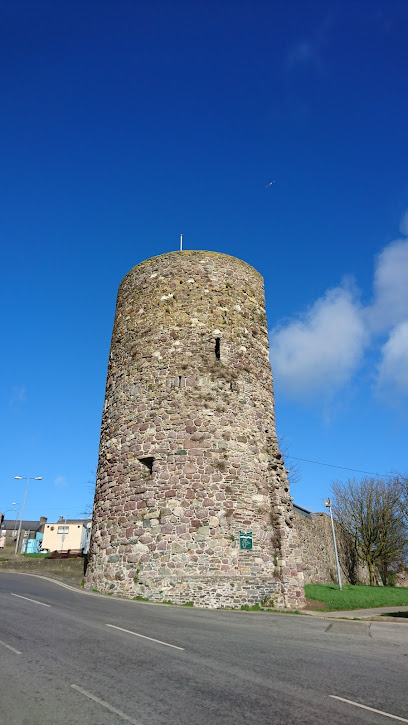
Viking Triangle Display
Explore the Viking Triangle Display in Waterford, where Viking history and medieval architecture come alive in Ireland's oldest city.
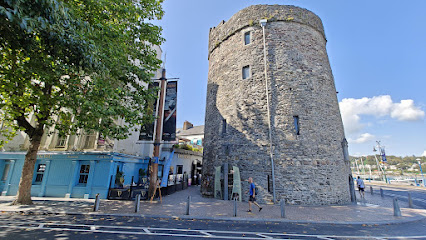
Thomas Francis Meagher Statue
Explore the Thomas Francis Meagher Statue in Waterford, a striking tribute to Irish heritage and a key figure in the fight for independence.
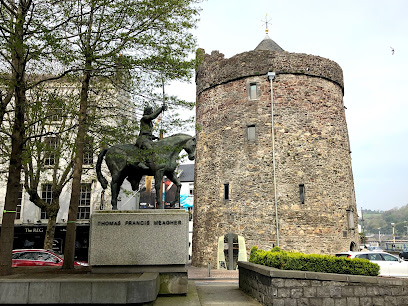
Unmissable attractions to see
Kilkenny Castle
Explore Kilkenny Castle, a historic gem showcasing Ireland's aristocratic past amidst stunning gardens and captivating architecture.
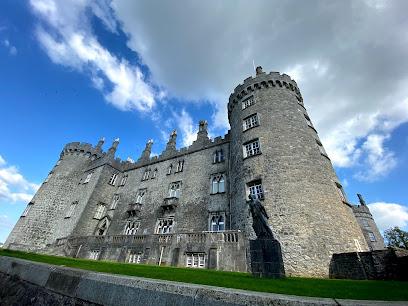
Hook Lighthouse
Explore the historic Hook Lighthouse in County Wexford, a stunning maritime landmark with breathtaking coastal views and rich heritage.
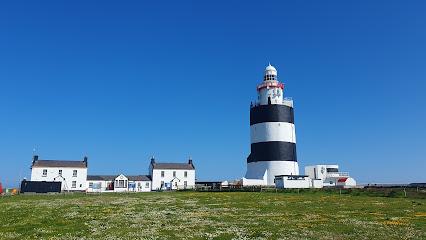
House of Waterford
Discover the art of glassblowing at the House of Waterford, where tradition meets craftsmanship in Ireland's renowned crystal-making hub.
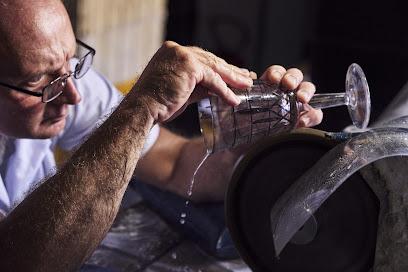
Kyteler's Inn
Explore Kyteler's Inn, Kilkenny's historic pub, where delicious food, local lore, and a lively atmosphere await every visitor.
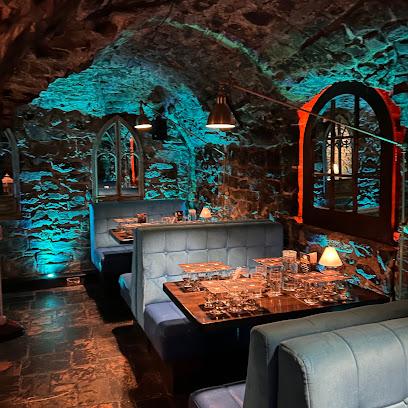
Dunbrody Famine Ship Experience
Explore the emotional journey of Irish emigrants at the Dunbrody Famine Ship Experience in New Ross, Co. Wexford – a must-visit for history enthusiasts.
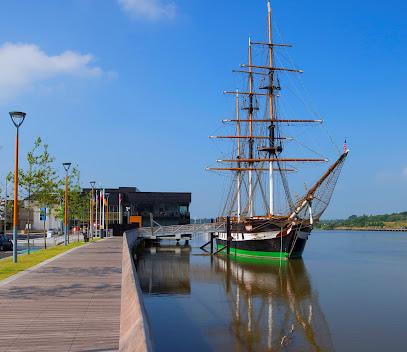
St Canice's Cathedral
Explore the historic St. Canice's Cathedral in Kilkenny, a masterpiece of Gothic architecture, offering stunning views and a serene atmosphere.
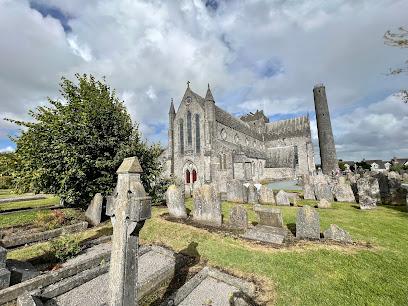
Waterford Castle Hotel & Golf Resort
Experience the grandeur of Waterford Castle Hotel & Golf Resort, where luxury meets history on a picturesque island in Ireland.
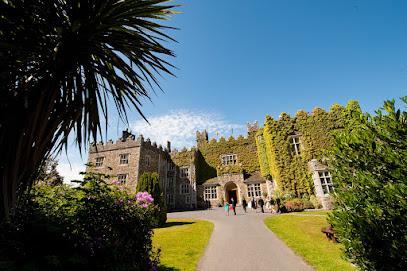
Lafcadio Hearn Japanese Gardens
Explore the serene Lafcadio Hearn Japanese Gardens in Tramore—an oasis of tranquility and cultural beauty amidst stunning landscapes.
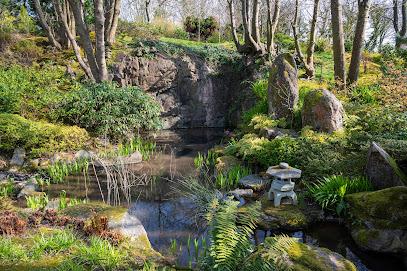
Smithwick's Experience
Uncover Kilkenny's brewing legacy at Smithwick's Experience, where history, culture, and craftsmanship come together for an unforgettable journey.
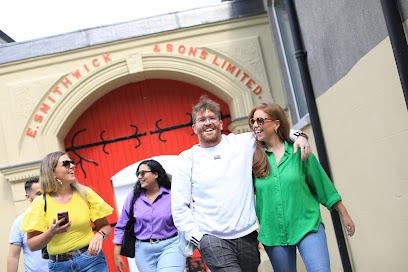
Waterford Treasures: Medieval Museum (Treasures of Medieval Waterford)
Explore Waterford's medieval history at the Waterford Treasures: Medieval Museum, where artifacts and stories bring the past to life in the Viking Triangle.
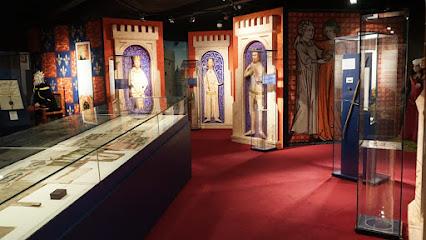
St. Mary’s Medieval Mile Museum
Explore Kilkenny's rich medieval history at St. Mary’s Medieval Mile Museum, a captivating destination for history lovers and tourists alike.
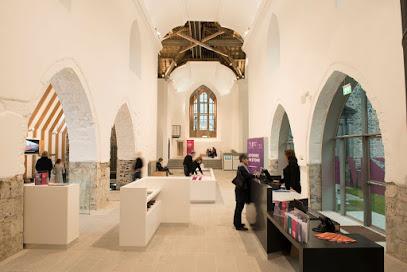
St. Mary's Cathedral
Discover the architectural beauty and historical significance of St. Mary's Cathedral in Kilkenny, a must-visit destination for every traveler.
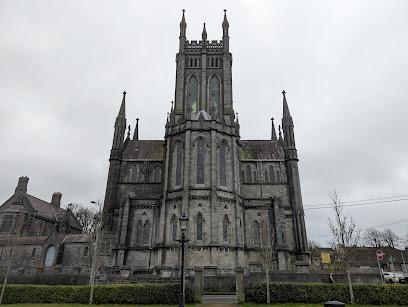
Mount Congreve Gardens
Explore the enchanting Mount Congreve Gardens in Kilmeaden, a serene botanical paradise filled with diverse flora, rich history, and delightful café experiences.
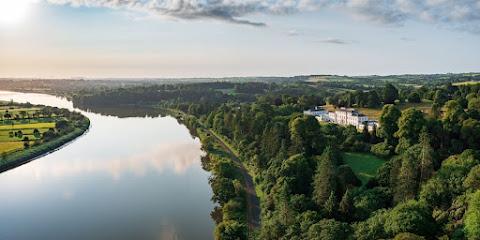
The Black Abbey
Discover the beauty and history of The Black Abbey in Kilkenny – a stunning medieval church with breathtaking architecture and serene gardens.
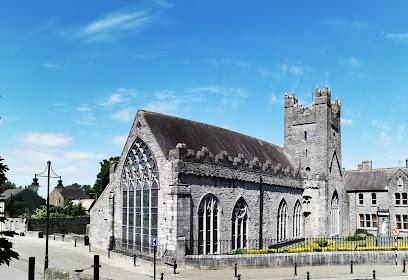
Reginald's Tower
Explore Reginald's Tower in Waterford, Ireland, a historical marvel showcasing the city's rich heritage and breathtaking riverside views.
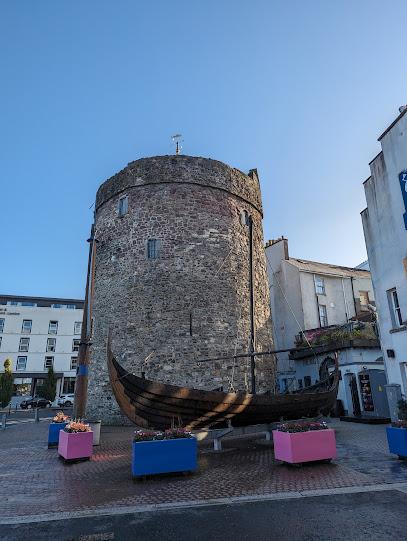
Essential places to dine
Granville Hotel
Discover culinary excellence at Granville Hotel: where fine dining meets stunning waterfront views in historic Waterford.
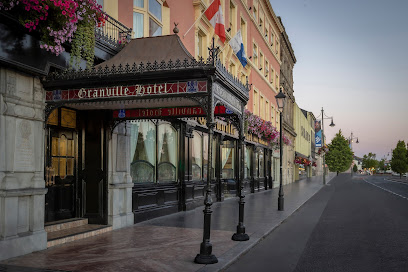
The Reg
Experience vibrant dining and nightlife at The Reg in Waterford - where culinary excellence meets lively entertainment.
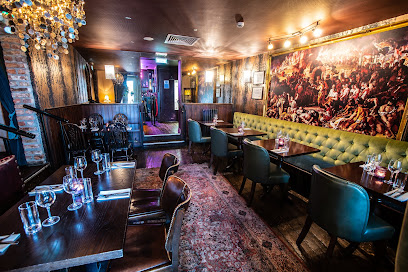
Emiliano's
Discover authentic Italian flavors at Emiliano's in Waterford - where every dish tells a story of tradition and passion.
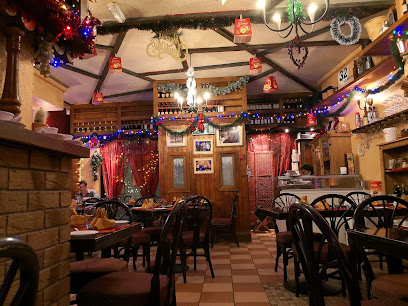
Momo Restaurant
Experience the best of Irish cuisine at Momo Restaurant in Waterford, where fresh ingredients meet innovative cooking.
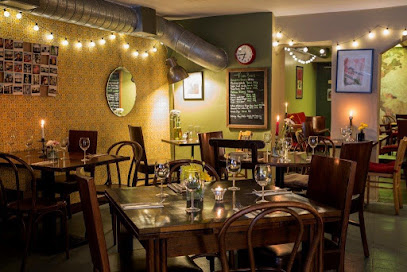
Uluru Bar
Experience the best grill specialties at Uluru Bar in Waterford - where flavor meets hospitality in a vibrant setting.
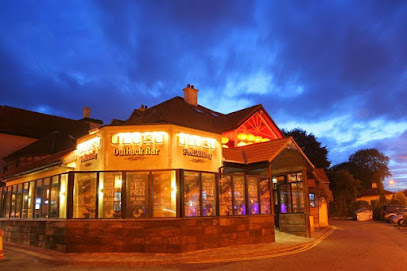
Burzza
Experience authentic Italian cuisine at Burzza in Waterford - famous for its exquisite pizzas and burgers in a cozy setting.
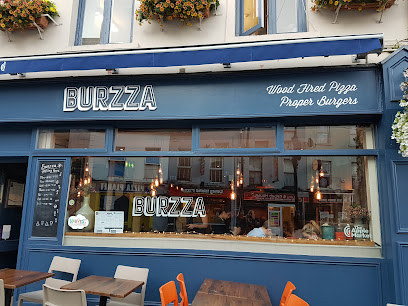
Revolution Craft Beer & Whiskey Bar
Experience the vibrant fusion of craft beer and exquisite cuisine at Revolution Craft Beer & Whiskey Bar in Waterford.
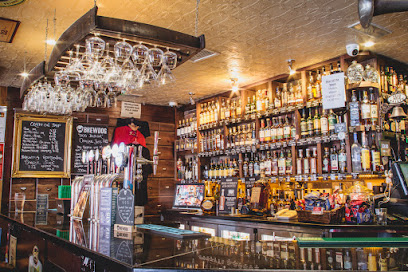
kazbar
Experience the vibrant flavors of Ireland at Kazbar, Waterford's premier grill restaurant known for its inviting atmosphere and delicious dishes.
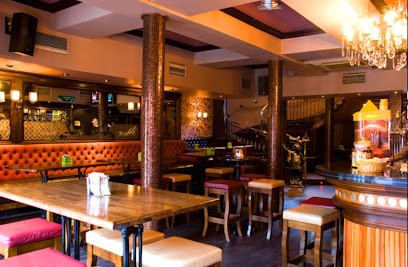
Kyoto Waterford
Experience authentic Japanese cuisine at Kyoto Waterford - where tradition meets flavor in a cozy setting.
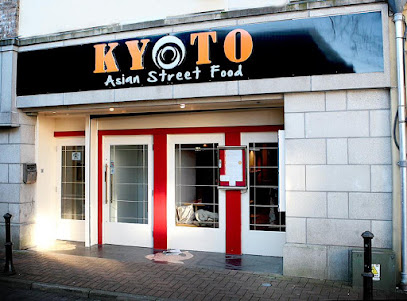
McLeary's Restaurant
Experience authentic Irish flavors at McLeary's Restaurant in Waterford – where tradition meets taste in every dish.
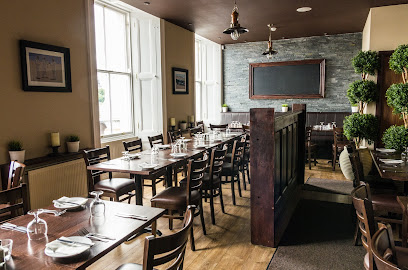
Hook & Ladder Waterford
Discover Hook & Ladder in Waterford - where artisanal breakfasts meet exceptional coffee in a cozy atmosphere.
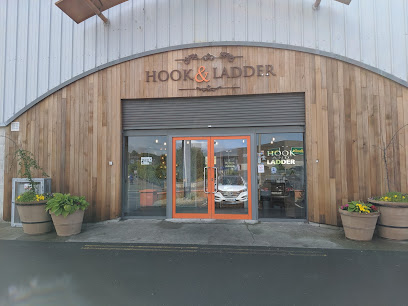
Oskars
Experience the heart of Irish cuisine at Oskars Grill & Pub in Ballynakill - where every meal is a celebration of flavor.
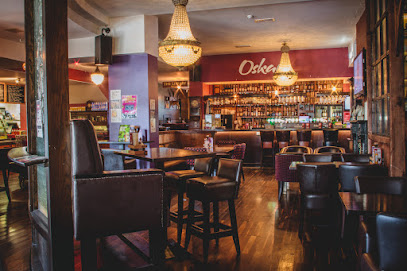
The Riverside Cottage
Discover The Riverside Cottage in Waterford: where local flavors meet exceptional dining in a charming gastropub setting.
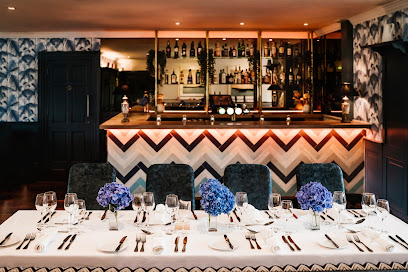
Bodega
Discover Bodega in Waterford: A Mediterranean culinary oasis offering seafood delights and exquisite cocktails in an inviting atmosphere.
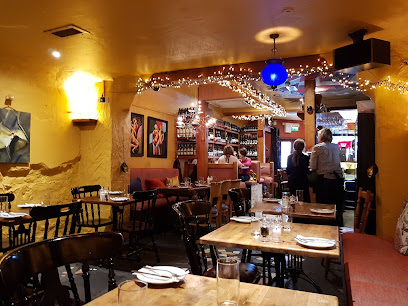
Grattan Bar
Discover the heart of Irish hospitality at Grattan Bar in Waterford—where traditional flavors meet modern comfort.
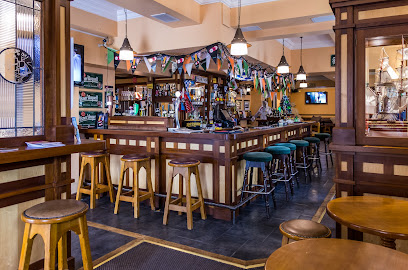
Markets, malls and hidden boutiques
City Square Shopping Centre
Discover endless shopping and dining at City Square Shopping Centre, the premier destination in Waterford for tourists and locals alike.
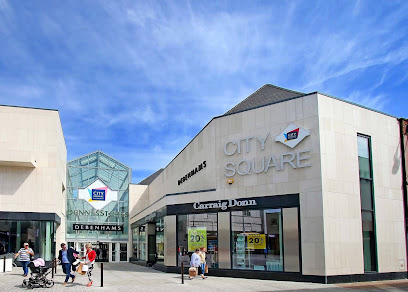
Penneys
Explore Penneys in Waterford for stylish clothing at unbeatable prices. A shopping haven that offers trends for everyone!
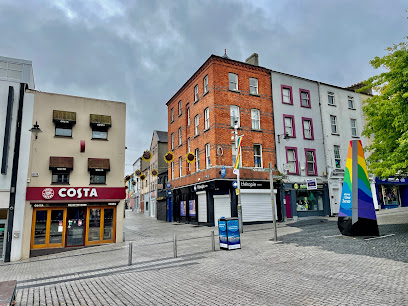
The Range, Waterford
Discover a diverse range of home essentials, art supplies, and more at The Range in Waterford, the ultimate shopping destination for every traveler.
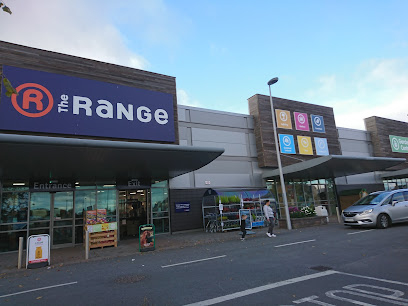
Home Store + More
Discover unique home essentials at Home Store + More in Waterford Retail Park, perfect for tourists seeking stylish decor and local treasures.
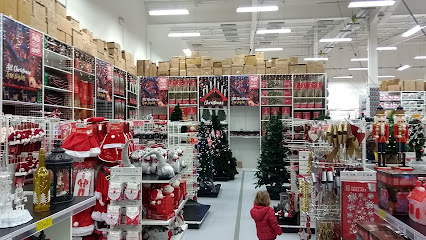
Waterford Shopping Centre Lisduggan
Experience shopping like never before at Waterford Shopping Centre Lisduggan, a retail paradise for tourists and locals offering diverse shops and dining options.
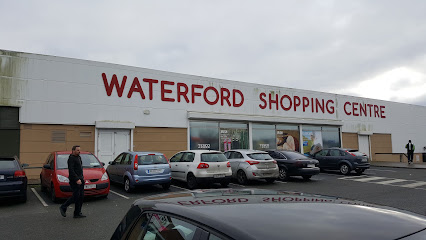
Waterford Retail Park
Shop, dine, and relax at Waterford Retail Park, your one-stop shopping destination in the heart of Ireland.
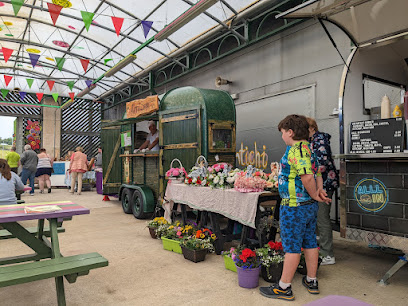
Ardkeen Quality Food Store
Explore Ardkeen Quality Food Store in Waterford - a gourmet grocery haven with fresh produce, artisanal cheeses, and delicious local delicacies.
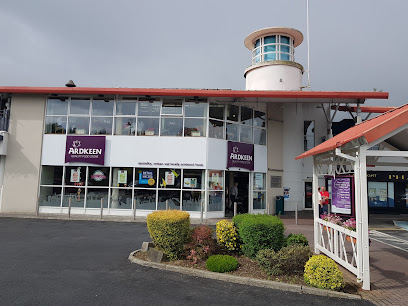
Ardkeen Shopping Centre
Discover Ardkeen Shopping Centre: Waterford's vibrant retail destination for shopping, dining, and essential services.
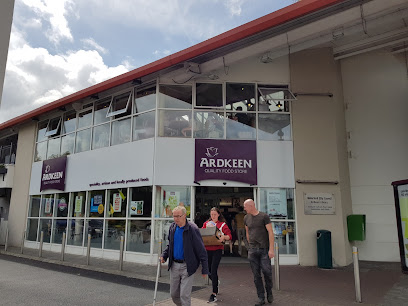
George's Court Shopping Centre
Experience a unique shopping and dining adventure at George's Court Shopping Centre in Waterford, where local culture meets modern retail.
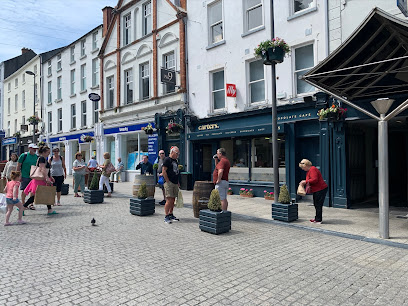
Dunphy's Shop
Explore Dunphy's Shop in Waterford for a unique shopping experience filled with local products, friendly service, and authentic Irish charm.
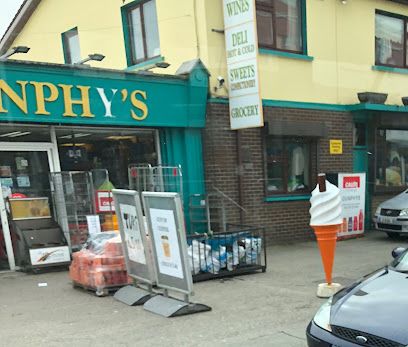
Next
Discover the latest fashion trends at Next in Waterford, offering styles for men, women, and children with an exceptional shopping experience.
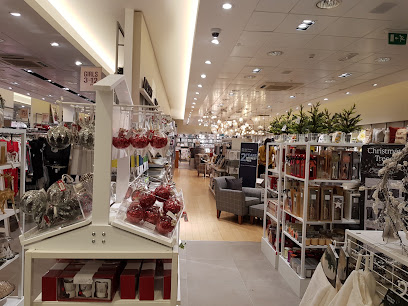
Finders Keepers
Explore Finders Keepers, Waterford's charming gift shop, filled with unique treasures and local artisan creations that make perfect souvenirs.
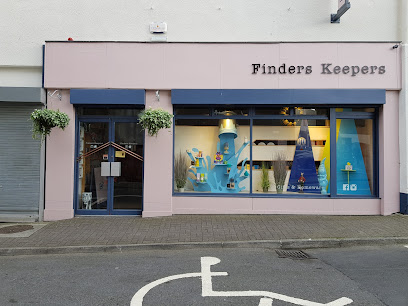
The Vintage Factory
Explore The Vintage Factory in Waterford for unique clothing treasures that blend nostalgia with style, perfect for every fashion enthusiast.
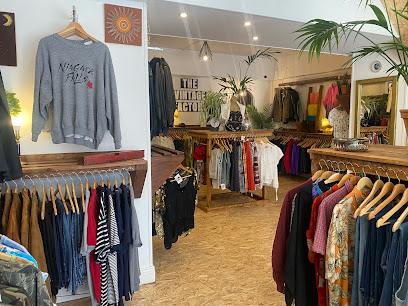
Youme
Explore Youme, Waterford's unique gift shop, offering handcrafted treasures and local artistry perfect for memorable souvenirs.
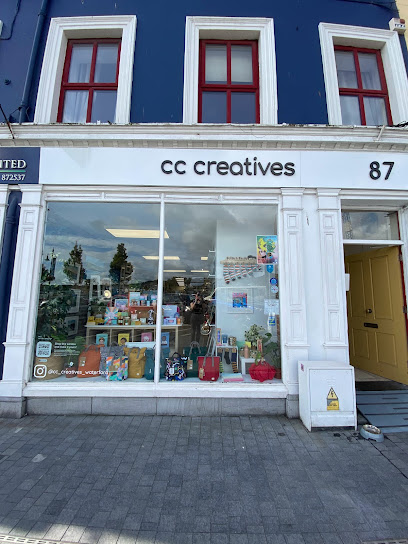
Carraig Donn Waterford
Discover traditional Irish design and contemporary fashion at Carraig Donn Waterford, your gateway to unique shopping in the heart of Waterford.
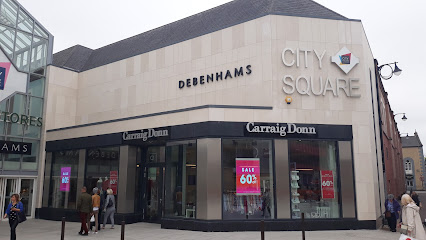
Essential bars & hidden hideouts
Geoff's Cafe Bar
Experience the flavors of Waterford at Geoff's Cafe Bar, where cozy ambiance meets delicious cuisine and vibrant local culture.
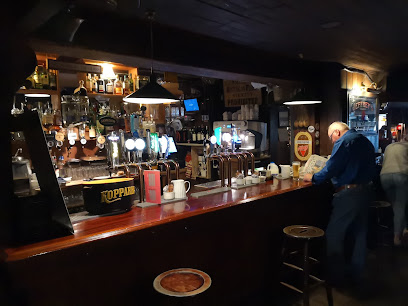
The Reg
Discover The Reg in Waterford: Where delicious dining meets exciting nightlife in a vibrant atmosphere, perfect for all visitors.
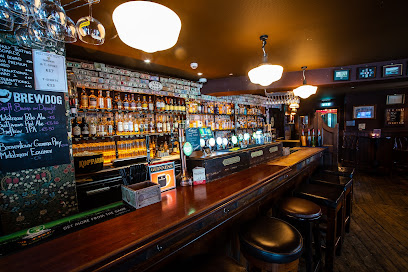
The Gingerman
Discover the warmth of Irish hospitality at The Gingerman Pub, where great food and a vibrant atmosphere await you in Waterford.
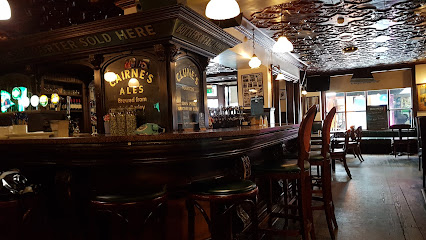
Revolution Craft Beer & Whiskey Bar
Discover Waterford's vibrant craft beer scene with delicious food and live music at Revolution Craft Beer & Whiskey Bar.
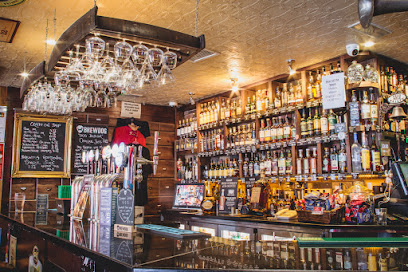
Tully's Bar Waterford
Experience the charm of Tully's Bar in Waterford, where local brews and vibrant atmosphere await every visitor.
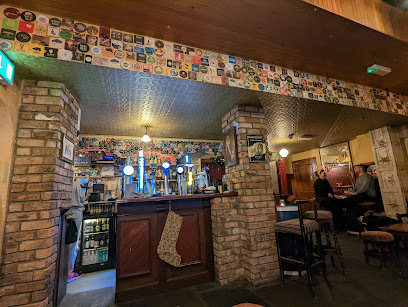
Grattan Bar
Experience the warmth of Irish hospitality at Grattan Bar, a charming bistro and pub in the heart of Waterford, perfect for food lovers and nightlife enthusiasts.
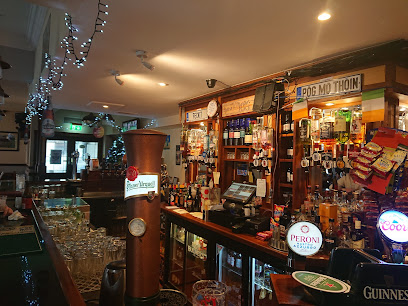
The Cove Bar
Discover the lively atmosphere and delightful local flavors at The Cove Bar in Ballynakill, Waterford, where every evening is a celebration.
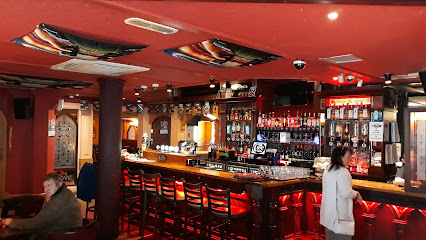
The Three Shippes
Experience authentic Irish hospitality at The Three Shippes, a vibrant pub in Newtown, Waterford, serving delicious food and local brews.
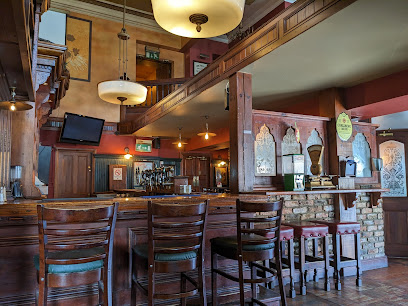
J. & K. Walsh Victorian Spirit Grocer
Experience the unique blend of history and hospitality at J. & K. Walsh Victorian Spirit Grocer in Waterford, a charming pub and local landmark.
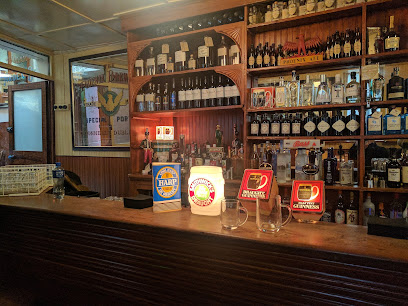
The Hub
Discover the heart of Waterford's Irish culture at The Hub, a vibrant pub offering traditional dishes and local brews in a warm atmosphere.
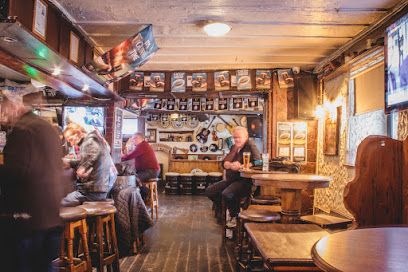
Katty Barry’s Bar Waterford
Discover the vibrant spirit of Ireland at Katty Barry's Bar in Waterford, a cultural and historical landmark featuring live music and delicious cocktails.
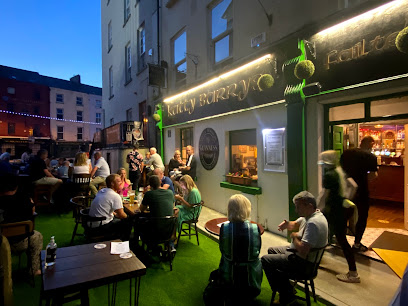
Jordan's Bar
Discover the vibrant atmosphere and authentic Irish hospitality at Jordan's Bar, a must-visit spot in Waterford for all travelers.
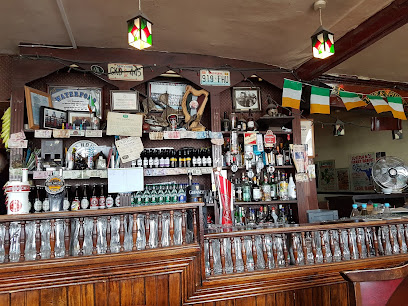
Davy Mac's Bar
Discover the lively charm of Davy Mac's Bar in Waterford, a perfect blend of traditional Irish hospitality and vibrant entertainment.
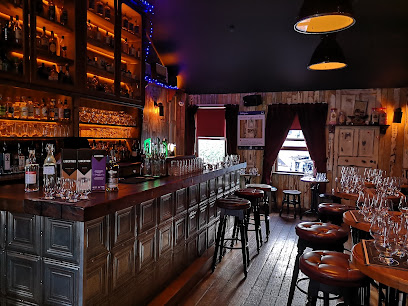
itty bittys
Discover the vibrant nightlife at Itty Bittys, Waterford's top cocktail bar offering live music and an unforgettable atmosphere.
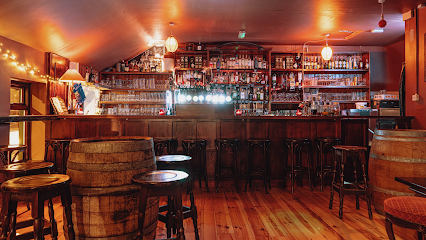
Henry Downes
Experience the lively charm of Henry Downes, a must-visit pub in Waterford, blending traditional Irish hospitality with vibrant nightlife.
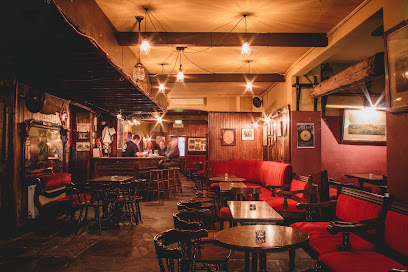
Local Phrases
-
- HelloDia duit
[dee-uh gwitch] - GoodbyeSlán
[slawn] - YesTá
[taw] - NoNíl
[neel] - Please/You're welcomeLe do thoil
[leh duh hull] - Thank youGo raibh maith agat
[guh rev my a-gut] - Excuse me/SorryMaith thú/Á brón orm
[mah who/a brawn urum] - How are you?Conas atá tú?
[kun-us ah-taw too] - Fine. And you?Tá mé go maith. Agus tú?
[taw may goh mah. ah-guhs too] - Do you speak English?An bhfuil Béarla agat?
[ahn will bayr-lah ah-gut] - I don't understandNí thuigim
[nee hug-im]
- HelloDia duit
-
- I'd like to see the menu, pleaseBa mhaith liom an mionn, le do thoil
[bah wah lum ahn myun, leh duh hull] - I don't eat meatNí itheann mé feoil
[nee ih-an may foh-il] - Cheers!Sláinte!
[slawn-cheh] - I would like to pay, pleaseBa mhaith liom íoc, le do thoil
[bah wah lum eek, leh duh hull]
- I'd like to see the menu, pleaseBa mhaith liom an mionn, le do thoil
-
- Help!Cabhair!
[kow-ir] - Go away!Imigh uaim!
[ih-mee oom] - Call the Police!Glan an Garda!
[glawn ahn gawr-duh] - Call a doctor!Glan dochtúir!
[glawn duhk-too-ir] - I'm lostTá mé caillte
[taw may kyle-teh] - I'm illTá mé tinn
[taw may chin]
- Help!Cabhair!
-
- I'd like to buy...Ba mhaith liom ceannach...
[bah wah lum kyun-ukh] - I'm just lookingNíl mé ach ag féachaint
[neel may uck egg fay-ukh-unt] - How much is it?Cé mhéad atá air?
[kay vay-ud ah-taw air] - That's too expensiveTá sé ró-dháiríre
[taw shay roh-gaw-ir-uh] - Can you lower the price?An féidir leat an praghas a laghdú?
[ahn fay-dur lat ahn prah-guhs ah ly-goo]
- I'd like to buy...Ba mhaith liom ceannach...
-
- What time is it?Cén t-am é?
[kayn t-ahm ay] - It's one o'clockTá sé a haon
[taw shay ah hayn] - Half past (10)Leathuair tar éis a deich
[lah-hoo-ir tahr aysh ah deh] - MorningMaidin
[mah-djin] - AfternoonTráthnóna
[traw-noh-nah] - EveningTráthnóna
[traw-noh-nah] - YesterdayInné
[in-ay] - TodayInniu
[in-yoo] - TomorrowAmárach
[ah-maw-rukh] - 1A haon
[ah hayn] - 2A dó
[ah doh] - 3A trí
[ah tree] - 4A ceathair
[ah kya-hir] - 5A cúig
[ah koo-ig] - 6A sé
[ah shay] - 7A seacht
[ah shakht] - 8A hocht
[ah hukht] - 9A naoi
[ah nee] - 10A deich
[ah deh]
- What time is it?Cén t-am é?
-
- Where's a/the...?Cá bhfuil ...?
[kaw will] - What's the address?Cad é an seoladh?
[kad ay ahn shoh-lah] - Can you show me (on the map)?An féidir leat é a thaispeáint (ar an léarscáil)?
[ahn fay-dur lat ay ah hish-paynt (ahr ahn lay-ir-skawl)] - When's the next (bus)?Cén uair a bheidh an chéad (bus)?
[kayn oo-ir ah vyay ahn khayd (bus)] - A ticket (to ....)Ticéad (go dtí ....)
[tick-ayd (guh dee)]
- Where's a/the...?Cá bhfuil ...?
History of Waterford
-
Waterford, known as Ireland's oldest city, was founded by the Vikings in 914 AD. The Norsemen established a settlement called 'Vedrarfjord,' meaning 'windy fjord,' which quickly grew into a bustling trading port.
-
In 1170, the city of Waterford was captured by the Norman adventurer Richard de Clare, also known as Strongbow. This marked the beginning of Norman influence in Ireland. Waterford became a significant stronghold for the Normans and an important center of commerce and trade.
-
During the medieval period, Waterford thrived as a wealthy city. It was granted a charter by King John of England in 1215, which brought privileges and autonomy. The construction of Reginald's Tower, the oldest civic building in Ireland, and the impressive city walls are testaments to Waterford's prosperity during this era.
-
In 1649, during the Cromwellian conquest of Ireland, Waterford was besieged by Oliver Cromwell's forces. The city, known for its strong defenses, held out for a significant period. However, it eventually fell to the Parliamentarian army, leading to extensive damage and loss of life.
-
In the late 17th century, Waterford saw an influx of Huguenot refugees fleeing religious persecution in France. These skilled artisans and traders significantly contributed to the city's economic and cultural development, particularly in the areas of textiles and glassmaking.
-
In 1783, brothers George and William Penrose founded the Waterford Glass House. This marked the beginning of Waterford Crystal, which became renowned worldwide for its exquisite craftsmanship and quality. The crystal industry played a crucial role in Waterford's economy and cultural identity.
-
The mid-19th century brought hardship to Waterford, as it did to all of Ireland, due to the Great Famine. The potato blight led to widespread starvation and emigration. Waterford's population diminished significantly during this tragic period, with many residents seeking a new life abroad.
-
The late 19th and early 20th centuries saw Waterford emerge as an industrial hub. The city established a shipbuilding industry and became a key transportation center due to its strategic port. This era of industrialization brought new economic opportunities and growth to Waterford.
-
Waterford played a role in the Irish struggle for independence from British rule in the early 20th century. During the 1916 Easter Rising, Waterford saw local uprisings and support for the cause. The subsequent War of Independence and the establishment of the Irish Free State in 1922 marked a new chapter in the city's history.
-
Today, Waterford is a vibrant city that blends its rich historical heritage with modern development. The city celebrates its history through various festivals, museums, and cultural events, while continuing to thrive as a center of commerce, education, and tourism.
Waterford Essentials
-
Waterford is accessible via several modes of transportation. The nearest international airport is Dublin Airport, approximately 170 kilometers away. From Dublin, you can take a direct bus or train to Waterford, with the journey taking around 2 to 3 hours. Alternatively, you can rent a car and drive, which offers flexibility to explore the surrounding countryside. Bus Éireann and Irish Rail provide regular services to Waterford from major cities in Ireland.
-
Within Waterford, getting around is relatively straightforward. The city is compact, and many attractions are within walking distance. For longer trips, local buses operated by Bus Éireann and private taxi services are available. Cycling is also a popular option, with bike rentals readily accessible. If you prefer more flexibility, car rentals are available, allowing you to explore the wider region at your own pace.
-
The official currency of Ireland is the Euro (€). Credit and debit cards are widely accepted in hotels, restaurants, and shops. ATMs are readily available throughout Waterford, but it is advisable to carry some cash for smaller establishments and rural areas. Contactless payment options are also commonly used, making transactions quick and convenient.
-
Waterford is generally a safe city for tourists. However, as with any travel destination, it is important to take standard precautions. Avoid walking alone at night in unfamiliar areas and keep an eye on your belongings in crowded places. While Waterford does not have specific high-crime areas targeting tourists, it is always best to stay vigilant and aware of your surroundings.
-
In case of emergency, dial 112 or 999 for immediate assistance. Waterford has several medical facilities, including University Hospital Waterford, which provides comprehensive medical services. Pharmacies are also available for minor health issues and over-the-counter medications. It is recommended to have travel insurance that covers medical emergencies.
-
Fashion: Do dress comfortably, but avoid overly casual attire in finer dining establishments. Smart casual is generally acceptable. Religion: Do respect local customs and religious sites. When visiting churches, dress modestly and avoid disruptive behavior. Public Transport: Do be respectful to fellow passengers and give up your seat for the elderly or pregnant women. Don't eat or drink on public transport. Greetings: Do greet people with a friendly 'hello' or 'hi.' Handshakes are common in formal settings. Eating & Drinking: Do try local delicacies and be open to new flavors. Don't refuse food or drink offerings, as it may be considered impolite.
-
To experience Waterford like a local, visit the Waterford Greenway, a scenic walking and cycling trail. Explore the Viking Triangle, a historic area with museums and cultural sites. Engage with locals at traditional pubs and enjoy live music sessions. Don't miss trying the famous Waterford Blaa, a soft bread roll unique to the region. Visiting during local festivals like the Waterford Harvest Festival can also provide a rich cultural experience.
Trending Landmark in Waterford
-
House of Waterford
-
Waterford Treasures: Medieval Museum (Treasures of Medieval Waterford)
-
Clock Tower
-
Reginald's Tower
-
King Of The Vikings
-
St. Patrick's Gateway Centre
-
Waterford Treasures: Bishop's Palace (Treasures of Georgian Waterford)
-
Edmund Rice Heritage Centre
-
The Dragon Slayer Sword
-
William Vincent Wallace Plaza
-
Beach Tower, Waterford
-
The Viking Triangle
-
The French Tower
-
Viking Triangle Display
-
Thomas Francis Meagher Statue
Nearby Cities to Waterford
-
Things To Do in Wexford
-
Things To Do in Kilkenny
-
Things To Do in Cork
-
Things To Do in Limerick
-
Things To Do in Kinsale
-
Things To Do in Bray
-
Things To Do in Dublin
-
Things To Do in Athlone
-
Things To Do in Ennis
-
Things To Do in Killarney
-
Things To Do in Drogheda
-
Things To Do in Galway
-
Things To Do in Salthill
-
Things To Do in Tralee
-
Things To Do in Dingle













